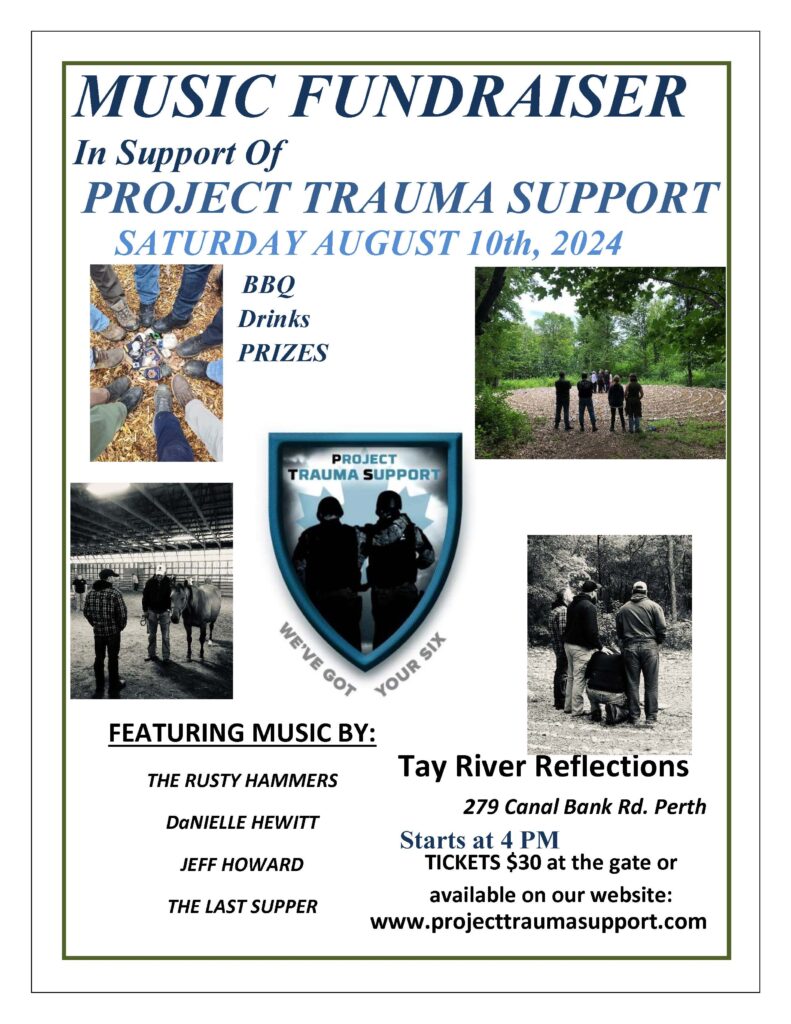Author: Manuela Joannou
The definition of a warrior is someone who is willing to put themselves in harm’s way for the benefit of others.
In the lives of our first responder and military warriors, intense, dangerous and critical scenes and incidents occur regularly. The daily stress combined with one too many tragic circumstances can lead to physical and psychic injury in caring individuals. This is what we call operational stress injury or post-traumatic stress. Very often the condition involves ethical dilemma or moral injury. This can occur if one must helplessly bear witness to unjust human suffering or is left wondering if they could have or should have done more or better. With a split second to decide, a police officer may do what he has been trained to do following exact protocols, and then may face criminal charges for having done so. A soldier may have been carrying out orders when he or she caused untold suffering. The feelings of guilt and resentment may be compounded if it is believed that the war had no noble cause. Moral injury occurs when we veer off the course that is charted by our moral compass, either by choice or by order. Feelings of guilt, sadness, anger or resentment at having been put in certain situations or being treated unfairly often combine to create an emotionally messy situation. Suicides can be the outcome of suffering caused by a seemingly unsolvable moral dilemma, leading only to more tragedy for those of us left behind.

When you are caught up in an emotional tornado, it is sometimes difficult to see the possible ways out. It can be even more difficult to choose the best one.
I learned long ago that the best way to deal with an emotionally complex and messy situation is to break it down into “basic principles”. Basic principles are those dictated by our deeply held values: love, respect, freedom, loyalty, integrity, compassion, honour, humility, peace. These trump matters of preference such as personal ease and comfort, pleasure, being “right”, winning the argument and getting our own way.
As parents, we try to teach our children right from wrong. We want them to grow up to be mature, successful, law abiding citizens who function well in society, who can sustain loving relationships and be employable. Ultimately we want them to be happy and at peace. We teach our children these basic principles by instructing them not to hit or bite others.
We encourage them to share in the sandbox and not steal other’s toys. If they have been mean to others, we make them apologize. If they destroyed someone’s property, they are made to clean it, repair it or replace it. We teach them to say things like: “thank you”, “I’m sorry”, “how can I help?”, “how are you?”, “want to come over?” We instill in them the Golden Rule. Life is difficult. Life is therapy. Our life story is a movie where we are the star character. We have many supporting actors, some who play major roles throughout our movie.
Some just make cameo appearances but may be integral to very significant scenes and plots that deeply affect us. Throughout our life movie, we are given many lessons in which to apply our basic principles. Some of us show up for these and do the homework. Some of us just don’t bother.
If we learn our lessons well, we evolve into centered, mature, wise and peaceful human beings. If we don’t heed them, we stay stuck, and because our lessons seem to come with ever increasing intensity, we often end up miserable. Sometimes the lessons are brutal. Tragic events, unfortunate choices, unforeseen circumstances, crimes inflicted upon us through the use of free will by others, all are the crux of the intense plots of our life stories. To a certain extent, we can’t avoid them.
Going back to basic principles can lead us out of the quagmire of messy emotions. You will note that most of the values that make up our basic principles involve our interactions with others. This is no accident. We are hardwired for struggle, but this is mitigated because we are also hardwired for connection.
Harboring feelings of guilt, regret, anger and desire for revenge are a waste of psychic energy and often times destructive.
They arise from a feeling of separation from others, from a desire to protect or punish the ego and the self, not from an empathic place of connection. But we have the choice to stand down.
- We can always choose peace.
- We can let go of our drive to be always “right” and drop the argument.
- We can allow ourselves to be vulnerable.
- We can make amends by saying we are sorry.
- We can do our best to atone for serious transgressions or soothe painful empathy by personally addressing the victims if appropriate, or by honouring them through meditative acknowledgment and mentally sending them apologies and blessings.
- We can pour our energies into restitution by making sure the same things don’t happen to others in the future. We can lobby politically for awareness and change.
- We can get better and “pay it forward”.
When we follow what is dictated by basic principles, we are offered a more gentle and sensible way through the emotional tornado. Because basic principles arise out of time honoured values, they are steeped in the noble choices recorded in the great stories of history and mythology. We honour the stories of our brave warriors who faced danger, loss and adversity but who ultimately did the right thing. We honour ourselves and our own stories when we also feel we are doing the right thing in the circumstance of trials and tribulations. Making good choices about one’s attitude and best course of action is difficult, especially when post-traumatic stress symptoms affect judgement and lead to isolation. Traditional societies did not let their warriors reconcile and process their experiences alone. Tribes celebrated their returning warriors and honoured their war actions with the acknowledgement that difficult choices were made for the good of the community. Ceremonies retold the stories of courage, strength, and victory but also the stories of sacrifice, loss and hardship. These are the themes of human existence, where the richness of human experience truly reside. Contemplation of the human condition in the supportive environment of a closely knit society where all members are granted unconditional positive regard leads to psychologically healthy processing of psychic and moral trauma. Sadly, our warriors do not experience this in our current social climate. The good news is that they can.
Project Trauma Support is a new Canadian initiative that promotes connection and honours the warrior story and spirit. Promoting time tested values and unconditional acceptance, the program helps participants transition from post-traumatic stress to post traumatic growth.


